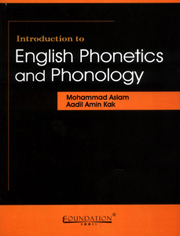6 - Intonation
Published online by Cambridge University Press: 26 October 2011
Summary
It is difficult to arrive at a precise definition of the term intonation. However, in simple words, it refers to the melody that every language manifests in speech. During speech, the voice goes up and down (known as the pitch) and these different notes of the voice make up the tone patterns or intonation of a language. In some languages, if you pronounce the same sequence of syllables, i.e. the same word, in different tones, it changes the meaning of the word. For instance, in Mandarin Chinese the word maː said in different tones changes the meaning of the word: if said with a level tone -maː means mother; with a rising tone ̗maː it means horse; and with a falling tone ̀maː it means scold. Such languages are called tone languages. However, in many languages, the tone does not belong to an individual word but to a word group. Such languages are called intonation languages and English is one of them. If we say yes in any tone in English, it will still mean “yes”. Tones, nonetheless, play an important role in English. They give the listener an idea about the speaker's emotions and/or intentions. Intonation can reveal the speaker's interest, anger, anxiety, surprise, etc. When we add such elements to our speech, we are using intonation.
As mentioned earlier, intonation mainly refers to the variation in the pitch level of the voice. When we speak, our pitch constantly changes.
- Type
- Chapter
- Information
- Introduction to English Phonetics and Phonology , pp. 79 - 93Publisher: Foundation BooksPrint publication year: 2007



